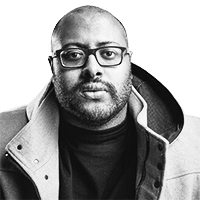Is Marvel’s The Punisher, featuring Frank Castle—a gun-toting, revenge-happy antihero—a necessary series right now as gun debates rage on and mass shootings increase in America? Turns out it just might be, but not without some much-needed rewriting of Frank’s history.
In the comics, Castle is a near-deranged war vet who mows down criminals like Paul Kersey in Death Wish, only with an Army-grade arsenal. The Punisher smartly places Frank at the center of a government conspiracy: his unit was unwittingly forced into committing war crimes, and now he wants to kill everyone responsible.
The Punisher is an extremely violent series—much like Marvel’s other Netflix series. There have been meditations on whether or not the violence is justified from series to series: Daredevil and Jessica Jones are pretty nonchalant about it, Luke Cage uses it with reservation, and Iron Fist has its titular character dead set against killing people until he joins the others in The Defenders. This show, however, treats violence much more viscerally. You see blood splattering from gunshots; you see an arrow being pulled from a wound. The violence is abundant and the gore quotient tops any previous Marvel series.
It comes as no surprise that showrunner Steve Lightfoot previously worked on Hannibal, because the violence is slow and methodical. It focuses on brutality in a way that sticks with you; that makes you feel like you’re actually experiencing it not simply because it’s cool, but because The Punisher is very invested in how violence affects us as humans.
Frank is plagued by PTSD from his tours in Afghanistan and Iraq, and frequently has dreams about his murdered family. Jon Bernthal is great at conveying the emotions of a man on the verge of a nervous breakdown, and much the same way Hannibal focused on the mind of Will Graham and how violence changes him, The Punisher focuses on how Frank’s worldview is perverted by the actions of a government that was entrusted to protect him.
Further making the series an indictment of the U.S. government are the scenes with a veteran support group. It illustrates how our country treats the men and women of our military once they come home and have to return to normal lives. We see attempts to protest the government, mental triggers that leave one soldier digging a foxhole in his yard, and the effect of one soldier being manipulated by a man who resembles the hate-mongering Make America Great Again crowd.
Since the series is chock-full of guns, it may seem as though it must support the Second Amendment crowd and the right to bear arms. But, even though Frank uses guns to exact his revenge, the show is decidedly anti-gun, depicting how these deadly weapons cripple us emotionally, and also physically.
Mostly, the series feels far more grounded than previous Netflix series, even with its pulpy revenge and conspiracy-theory elements. The series before it have attempted to be grounded, but they also strike an odd balance in mixing superheroes with a gritty, realistic setting that often pretends like aliens don’t regularly land on Earth and have knock-down, drag-out fights with other aliens.
The Punisher mostly does away with this as it strips superheroism from its premise, along with the requisite winks and nods at other Marvel series. Aside from a couple of cameos and the appearance of Karen Page as a supporting character, The Punisher truly feels like a stand-alone series in a way that none of the other Marvel Netflix series have accomplished.
It’s slow-building but moves with a purpose, whereas many of Marvel’s other Netflix series drag toward the finish line. The Punisher manages to focus primarily on the struggles of men and women who are damaged in ways that are fresh for television. There’s Frank and his computer hacker-friend Micro, both dealing with faking their own deaths (though Micro actually has a family he’s abandoned), but there’s also Dinah Madani, who is perhaps one of television’s most interesting characters.
The show feels a bit like Homeland with its dizzying conspiracies but it’s also the anti-Homeland. Amber Rose Revah portrays a Persian-American woman working for Homeland Security who’s great at her job, despite being distrusted by colleagues. It’s a three-dimensional character replete with a mother she can have tough conversations with, a sex life, and a ferocious personality at work. It shows that The Punisher is about more than adapting comic book characters—it’s about fleshing out humans.






